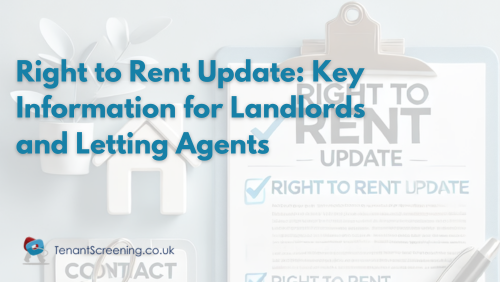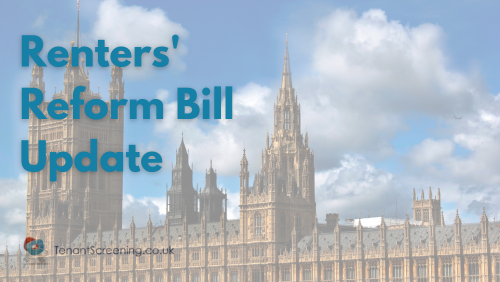How to Attract & Keep High-Quality Tenants in the UK
A high-quality tenant pays rent reliably, cares for the property, and follows the lease terms. For example, a “responsible tenant who pays rent on time, takes care of the property, and follows the lease” makes management far easier. Good tenants save you time and money: they look after the home (reducing repair bills) and stay longer, reducing void periods. By contrast, a problematic tenant can lead to rent arrears, damage, and legal hassles. In short, attracting tenants who meet your screening criteria (steady income, positive references, responsible attitude) sets the foundation for a smooth tenancy.
Effective Marketing and Advertising
Use multiple channels to cast a wide net for prospective renters. List your property on major UK portals like Rightmove, Zoopla and OnTheMarket, where thousands of renters search. A good letting agent can help here: they have extensive tenant databases, high-street presence and social media reach. For example, agents can supply professional photographs and catchy descriptions that showcase your home’s unique selling points, from a bright modern kitchen to a garden or off-street parking.
- Professional listing – Invest in high-quality photos and a detailed description. Highlight the best features (e.g. newly fitted kitchen, large garden or included broadband) so tenants can “see themselves living there”.
- Multi-channel ads – Besides online portals, post in local newspapers, social media groups, and put up tasteful “To Let” signs. Word-of-mouth through friends or community boards can also find reliable renters.
- Target marketing – Consider your audience. If pet-owners are likely candidates, advertise as pet-friendly. (In the UK over half of adults own a pet, so permitting pets can greatly expand your tenant pool.) Use phrases like “pets considered with deposit” to draw interest.
By combining online listings, social media, agents and signs, you maximise exposure. Effective marketing means more viewings and a better chance of finding the right tenant.
Property Presentation and Maintenance
A well-presented property attracts higher-quality tenants. Before viewings, ensure the home looks clean and cared-for. Complete minor repairs (leaky taps, broken fixtures) and freshen up paint or décor if needed. Declutter each room so it feels spacious, and deep-clean thoroughly (you may wish to hire a professional cleaner).
- Repair any faults. Fix holes in walls, squeaky doors or cracked tiles. A tenant won’t want to move in if the house feels like a construction zone.
- Freshen the décor. Neutral, light-coloured paint and clean carpets help the property look newer. Even simple updates like new light shades or curtains can lift the space.
- Deep clean. A spotless home shows you care. Clean ovens, bathrooms and windows until they sparkle. This comfort level makes tenants feel valued and more likely to stay.
- Maintain safety. Check smoke alarms, gas appliances and electrics are all in good working order. Ensure gardens are tidy and any communal areas (in an HMO) are clean and safe. A secure, well-maintained home builds trust and encourages tenants to treat it well in return.
Present your property/rooms in show-home condition at viewings. Highlight selling points (e.g. a new boiler, energy-efficient windows, or a large garden) so applicants appreciate the value. A property that feels like a home rather than a project will stand out in a crowded rental market.
Competitive and Fair Rent Pricing
Set the rent at the right level. Research comparable lettings nearby (similar size, location, condition) on Rightmove/Zoopla to gauge market rates. Factors such as the property’s condition, amenities and area demand should guide you. For instance, a modern, furnished flat in a desirable London district will command more than an unfurnished house in the north of the country. Consider all perks: outdoor space, parking, or included utilities can justify a slightly higher rent.
- Market research – Compare your property to similar listings. Note how long they’ve been advertised. If comparable homes stay on the market for weeks, you may need to price lower. If they let quickly, you could ask more.
- Competitive pricing – Often, setting the rent just under the area average yields better results. More enquiries give you choice of the best applicant, and satisfied tenants who feel they got a good deal.
- Adjust if needed – If you’re not getting viewings, gradually reduce the rent until demand picks up. Some agents even lower rent by £15–£25 weekly to stimulate interest. Avoid steep or sudden cuts; instead find a fair price that balances income and occupancy.
- Rent reviews – When the lease ends, communicate proposed increases early. In England’s private sector, rent can only be raised with tenant agreement or by following legal notice procedures. Keep increases modest and in line with the market to avoid losing tenants.
In summary, a rent that is fair and competitive helps retain tenants. Overcharging may leave your property empty, while undercharging means leaving money on the table. Do your homework to strike the right balance.
Legal Obligations and Tenant Rights (UK)
UK landlords must comply with a range of regulations to protect tenant safety and rights. Stay current on key requirements:
- Safety certificates – You must have an annual Gas Safety Check by a Gas Safe–registered engineer and provide tenants with a copy. Electrical installations should be inspected (e.g. a 5-yearly Electrical Installation Condition Report in England/Wales). Furnished homes require fire-safe furnishings.
- Alarms and EPC – Fit smoke alarms on every floor and a carbon monoxide detector in rooms with solid-fuel appliances. By law you must supply an up-to-date Energy Performance Certificate (minimum grade E for new lets) to prospective tenants and give them a copy when they move in.
- Deposit protection – Any tenancy deposit (typically 5 weeks’ rent) must be placed in a government-approved tenancy deposit scheme within 30 days of receipt. Provide the tenant with scheme details and a copy of the prescribed information. (Failing to do so can invalidate your right to serve notice and may incur financial penalties.)
- Right to Rent – In England you must check each tenant’s immigration status before letting (the “Right to Rent” check). Retain copies of passports or ID as proof of compliance.
- HMO licensing – For Houses in Multiple Occupation, you need a licence if the property has five or more people from at least two households. Local councils enforce HMO standards (fire escapes, facilities, management practices). Always check and renew HMO licences as required.
- Repairs and maintenance – Landlords must keep the property free of health hazards and carry out necessary repairs (structure, plumbing, heating, etc.). Tenants have the right to request repairs, and serious breaches can be reported to the council or tribunal. (Prompt attention to maintenance keeps tenants happy and avoids enforcement actions.)
- Tenancy agreements – Use a written Assured Shorthold Tenancy or similar contract covering all agreed terms.
- Tenant rights – Beyond these obligations, tenants have legal rights like quiet enjoyment (the right not to be harassed and to privacy). You must normally give 24 hours’ notice before entering the property. Do not discriminate on protected grounds (race, religion, etc.). Upon tenancy end, return the deposit promptly (minus any agreed deductions) or face statutory penalties if you delay or wrongfully withhold it.
Tenant Screening Best Practices
Use services like Tenant Screening to conduct background checks, credit checks, and reference verifications. Comprehensive tenant screening can help you identify reliable tenants who are likely to pay rent on time and take care of your property. By selecting the right tenants, you can reduce the risk of rent arrears and property damage. Best practices include:
- ID and Right-to-Rent check – Verify each applicant’s identity (passport, driver’s license, etc.) and conduct the legal Right to Rent check if required.
- References – Ask for references from previous landlords or letting agents. Contact them to confirm the tenant’s payment history and behaviour (did they pay on time? care for the property?). A solid past reference is a strong green flag.
- Employment and income – Request recent payslips or employment letters to ensure affordability.
- Credit check – use a UK tenancy referencing service to perform a credit check and flag any serious issues (CCJs, defaults, etc.).
- Affordability and stability – Avoid tenants who refuse to provide information. If something feels off, trust your gut.
- Guarantors – For students or lower-income tenants, a UK-based guarantor (usually a parent or guardian with sufficient income and ideally a home owner) can provide extra security.
By carrying out thorough checks – either yourself or via a professional service such as Tenant Screening – you greatly reduce the risk of late rent or problem tenants. Remember to follow data protection rules when handling applicants’ information.
Creating a Positive Tenant Experience
Good landlords retain good tenants. Building a positive relationship pays dividends in tenant loyalty and care for your property. Key practices include:
- Open, responsive communication – Keep lines of communication clear. Let tenants know how to reach you and respond promptly to calls or emails. Tenants who feel listened to are more likely to stay.
- Quick repairs and maintenance – If a tenant reports a problem, act swiftly. Promptly fixing a broken boiler or leaking roof shows you care about their comfort and safety. Tenants living in good conditions are happier and more inclined to stay.
- Fair rent and policies – Treat tenants with fairness. Avoid abrupt rent hikes; if you must raise rent, give reasonable notice and explain it in terms of market rent or improvements made. Transparent policies on issues like pet ownership or subletting build trust. (A tenant who feels valued won’t rush to move out for slight savings.
- Respect privacy – Give proper notice (usually 24 hours) before entering the property for inspections or repairs. Respect tenants’ schedules and privacy. Avoid unnecessary visits. This courtesy reinforces goodwill.
- Create a sense of community – In HMOs or multi-unit houses, foster good communal relationships. For example, allow tenants to decorate shared spaces (with guidelines) or organize casual meet-ups. A landlord tip: “fostering a community feel…provides communal areas where tenants can interact” which encourages them to stay.
- Small touches – Consider little perks: a welcome basket or information pack of local amenities on move-in. Offer to allow small personalisation’s (like hanging pictures) to help tenants feel at home. Such gestures show you value them as people, not just as payees.
Overall, aim to make renting from you a positive experience. A friendly but professional approach – balanced with clear boundaries and quick service – turns tenants into long-term, trouble-free occupants.
Tenancy Renewal Incentives and Communication
Retaining a good tenant often comes down to timing and incentives. A few strategies:
- Early renewal talks – Contact tenants a couple of months before their tenancy ends to discuss renewal. Asking if they wish to stay shows you value them. According to landlord advisers, offering an incentive 2–3 months in advance can work wonders.
- Offer incentives – Consider a small reward for signing on longer. For example, one month’s free rent, a discounted rate, or a free service (like carpet cleaning) can motivate tenants to renew. Even minor upgrades (e.g. fresh paint or new fixtures) as a “thank you” for renewal can build loyalty.
- Reasonable increases – If you need to raise rent, do so sparingly and gently. Keep the increase in line with local market rents and preferably under 5–10% per year. A tenant who sees they’re still getting a good deal is likely to stick around.
- Flexible terms – Some tenants appreciate longer tenancies for stability. Alternatively, guarantee not to increase rent during that period as an incentive.
- Positive communication – Maintain polite, friendly contact even after issues are resolved. Send a simple message (email, text, WhatsApp message or letter) a month before expiry saying you hope they’ll stay and outlining any benefits of renewal. Personal warmth and transparency go a long way.
By proactively discussing renewal and showing appreciation for good tenants, you reduce turnover. Happy tenants who feel they have a good deal and a respectful landlord are much more likely to sign a new tenancy.
Final Thoughts
UK landlords (whether managing single-family homes or HMOs) will benefit greatly from the extra effort of attracting and keeping tenants of high calibre. Use smart marketing, price fairly, present your property well, follow the law to the letter, and treat tenants with respect and responsiveness. These best practices not only protect your investment but build a reliable income stream and reduce headaches in the long run.












